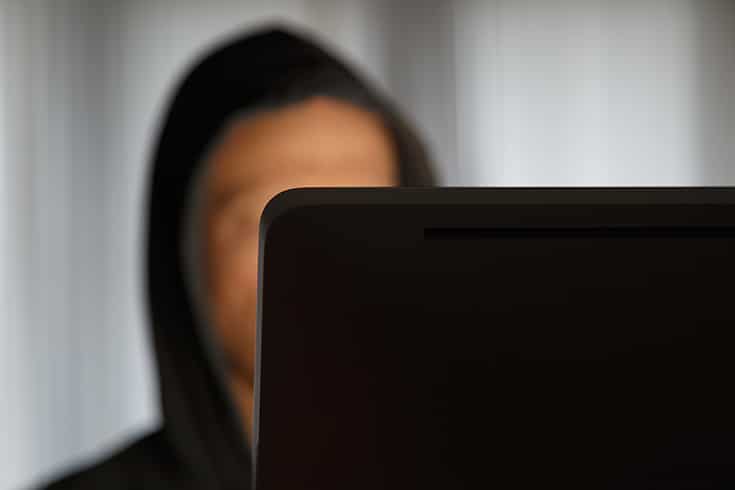Is 'Impersonation' on Twitter Illegal? A Crime? What Kind of Offense Does It Constitute?

Twitter, a tool that allows people to casually tweet about their interests, is widely used by many. Despite its global popularity, it’s a fact that Twitter is riddled with impersonation accounts. Recently, fake accounts of prominent business leaders and YouTubers have been a hot topic.
Twitter allows individuals to have multiple accounts anonymously, making it easy for anyone to create an impersonation account.
So, what kind of crime does impersonation on Twitter constitute? In this article, we will focus on the following five points:
- Defamation
- Privacy rights
- Right of publicity
- Copyright
- Identity rights
Impersonation
The typical case of impersonation involves someone else unauthorizedly using your real name, affiliation, profile picture, or profile text, and posting as if they were you. However, even if it’s not necessarily your real name, for example, if someone uses your pen name, stage name, pseudonym, or handle name without permission, it can also be considered as impersonation. This issue is referred to as “identifiability” in legal terms. We provide a detailed explanation of this issue in the article below.
https://monolith.law/reputation/defamation-privacy-infringement-identifiability[ja]
So, what kind of rights can be claimed if you actually become a victim of impersonation on Twitter?
Defamation
Defamation can be categorized into criminal defamation and civil defamation. Honor refers to the objective social evaluation received from society regarding a person’s personality, virtue, reputation, credit, and other personal values. An act that lowers this social evaluation is an infringement of the right to honor, and is considered defamation.
Impersonation, not limited to Twitter, primarily raises issues of infringement of the right to honor.
There have been cases where the defendant set the same account name as the plaintiff, used the plaintiff’s face photo as a profile image, impersonated the plaintiff, and made posts such as insulting third parties. The plaintiff sought damages, claiming that their right to honor and other rights were infringed upon.

The defendant repeatedly made defamatory remarks, using discriminatory terms and derogatory expressions towards other users. This is a typical pattern of impersonation.
The court stated,
“Based on the general viewer’s normal attention and reading, it can be recognized that the posts in question could be mistakenly perceived as being made by the plaintiff.”
Osaka District Court, August 30, 2017 (2017)
and towards third parties,
“It can be said that it gives a misunderstanding that the plaintiff is a person who insults and abuses others without basis, thereby lowering the plaintiff’s social evaluation and infringing on their right to honor.”
The court ordered the defendant to pay 600,000 yen in compensation for emotional distress, 586,000 yen for the cost of requesting disclosure of sender information, 120,000 yen for attorney fees, for a total of 1,306,000 yen.
In other words, if a third party writes a slanderous statement about you, such as “That person insults others without basis,” it is defamation. Similarly, if a third party impersonates you and writes, “I insult others without basis,” it is also considered defamation. This is the logic.
If the social evaluation of the victim who was impersonated is lowered due to the impersonation act of the perpetrator, it is possible to pursue defamation.
Furthermore, since defamation is also a crime under the Penal Code, it is possible to report such types of impersonation to the police.
Privacy Rights
In cases of Twitter impersonation, violations of privacy rights are rarely recognized. As we have explained in another article on our site, the requirements to constitute an invasion of privacy are:
- It involves facts about private life or matters that could be perceived as such
- From the perspective of the individual in question, based on the sensitivity of the general public, it is a matter that would not want to be disclosed
- It is a matter not yet known to the general public
- The individual in question actually felt discomfort or anxiety due to the disclosure
In lawsuits against impersonation, even if the use of the plaintiff’s face photo as a profile picture is claimed as a violation of privacy rights, it is rarely recognized.
In the defamation example mentioned above, the plaintiff claimed that the use of his face photo as a profile picture was a violation of privacy rights, but the court did not accept this, stating:
At the time of the post in question, it was recognized that the plaintiff had set the face photo used by the defendant as the profile picture on the site in question. Considering that the site is a page on the Internet that can be accessed by an unspecified number of people, it is reasonable to recognize that the plaintiff’s face photo was placed in a public domain accessible to third parties by the plaintiff. Therefore, it cannot be considered as a fact or information about private life that the plaintiff does not want others to know. Thus, the benefit of not having the plaintiff’s face photo used by the defendant disclosed to third parties without permission cannot be recognized as something protected by privacy rights.
Osaka District Court, August 30, 2017 (2017)
Similar judgments have been made in other lawsuits. Since the face photo posted on the Internet was placed in a public domain accessible to third parties, it cannot be considered as a fact or information about private life that one does not want others to know. Therefore, it can be said that it is difficult to claim a violation of privacy rights for using the plaintiff’s face photo as a profile picture.
https://monolith.law/reputation/scope-of-privacyinfringement[ja]
Furthermore, while invasion of privacy is illegal in civil law, it is not a crime under criminal law. Therefore, it is not possible to request an investigation by the police on the grounds of invasion of privacy.
Portrait Rights
When your image is used without your permission on the internet, it is usually considered an infringement of your portrait rights. Regarding portrait rights, the Supreme Court of Japan stated on February 2, 2012 (Gregorian calendar year):
“A portrait is a symbol of an individual’s personality, and the individual has the right not to have it used arbitrarily, derived from their personal rights.”
Supreme Court of Japan, February 2, 2012 (Gregorian calendar year) Judgment
On the other hand, the Supreme Court also stated on November 10, 2005 (Gregorian calendar year):
“There may be cases where the use of another person’s portrait should be permitted as a legitimate expression, etc. Therefore, whether the use of another person’s portrait is illegal or not should be determined by comprehensively considering the purpose of use, the degree of infringed interests, the manner of infringement, etc., and whether the infringement exceeds the tolerable limit in social life.”
Supreme Court of Japan, November 10, 2005 (Gregorian calendar year) Judgment
In other words, the use of another person’s portrait is not always permitted, but it is not always prohibited either. The issue is whether it is being used “arbitrarily” or whether it is being used in a way that “exceeds the tolerable limit in social life”.

There was a case where a high school senior majoring in violin requested the disclosure of sender information from an intermediary provider, claiming that her portrait rights were infringed by an impersonation on Twitter by an unidentified person.
The unidentified person registered an account on Twitter with the same first and last name as the plaintiff, “A”, and used the username “@×△□”. They posted a tweet with the plaintiff’s face attached, stating “b small → c middle → d 64th term violin major a’s secret account”.
The court acknowledged that:
“The ‘×’ part of ‘@×△□’ can be read as ‘×’ in Romanized reading, and it is natural to read it as such since there is no other appropriate word. This easily brings to mind the word ‘womanizer’, which means a man who deceives and plays with women or does so habitually. The part with ‘△’ can be interpreted as a phrase that suggests masturbation when read in conjunction with the ‘×’ phrase. At least it can be reasonably considered that the sender of this case registered the above username with the above reading and purpose. Although the reading and purpose of the remaining ‘□’ are not necessarily clear, even excluding this point, the username of this account gives a vulgar impression.”
And also acknowledged that:
“The sender of this case registered and used this account impersonating the plaintiff with the intention of unfairly disparaging the plaintiff, and as part of this, used the plaintiff’s face photo without the plaintiff’s permission. Therefore, the purpose of using the above face photo is unfair, and there is no necessity to recognize it, and the manner of use is also malicious. The infringement of the plaintiff’s portrait rights by this post should be considered to far exceed the tolerable limit in social life, and it is clear that this post is illegal under the tort law.”
As a result, the court recognized the infringement of portrait rights and ordered the intermediary provider to disclose the sender’s information.
Just because your photo is used on an account does not mean that an infringement of portrait rights will be immediately recognized. However, even if it is a photo that you have posted on the internet yourself, if it is used “arbitrarily” and “exceeds the tolerable limit in social life”, there is a possibility that an infringement of portrait rights may be recognized.
In relation to defamation, if defamation is recognized, it is highly likely that an infringement of portrait rights will also be recognized.
Please note that infringement of portrait rights is not illegal in criminal terms, and you cannot ask the police to investigate.
Copyright
Impersonation on Twitter can sometimes lead to issues related to ‘Japanese Copyright Law’.
Copyright is an intellectual property right that arises for ‘creative expressions of thoughts or feelings that belong to the realm of literature, academia, art, or music (works as defined in Article 2, Paragraph 1, Item 1 of the Japanese Copyright Law)’. This also applies to photographic works.
In the case of photographs, if someone impersonates the plaintiff and registers and uses the account in question, and uses the plaintiff’s face photo without permission as part of that process, even if the infringement of portrait rights is not recognized, if the photo was taken by the impersonator, there may be cases where it is possible to claim copyright infringement.
In a case introduced in another article on our site, the plaintiff used a selfie as a Twitter profile picture. The sender duplicated this photo without the plaintiff’s permission, and copyright infringement was recognized (Tokyo District Court, June 9, 2017).
Note that unlike patents that must be registered, copyright is a right that arises as soon as you create something.
Furthermore, criminal penalties are also stipulated for copyright infringement. If you infringe on copyright, you may be subject to criminal procedures such as fines or imprisonment after investigation by law enforcement agencies.
Criminal procedures are completely separate from civil procedures where the copyright holder demands an injunction against infringement, damages, and measures to restore reputation. A criminal complaint is one of the triggers for the initiation of criminal procedures.
Identity Rights

- Defamation
- Invasion of privacy
- Infringement of portrait rights
- Copyright infringement
Even in cases where impersonation is carried out that does not fall under the above categories, if a separate personality other than the person themselves is constructed through the impersonation, and the actions of this separate personality are perceived by others as the actions of the person themselves to the extent that they are widely accepted, and the person being impersonated suffers mental distress to the point where it becomes difficult for them to lead a peaceful daily life, separate from the rights of honor and privacy,
It is gradually being recognized that the right to maintain personal identity in relationships with others, in the sense of “identity rights”, should be considered, and impersonation should be seen as an infringement of these rights.
In the Osaka District Court’s decision on February 8, 2016 (Heisei 28),
“In cases where the person being impersonated suffers mental distress to the point where it becomes difficult for them to lead a peaceful daily life and social life”
The requirement that was stated, in the Osaka District Court’s decision on August 30, 2017 (Heisei 29),
“Whether the infringement of the interest in the identity of the personality exceeds the limit of social tolerance”
Has become considerably more lenient.
The two court precedents that recognized the right to identity can be said to be a significant step. Future increases in precedents related to identity rights require attention.
Shouldn’t we recognize the illegality of impersonation itself, and in cases where it is claimed that “the identity of the personality is being falsified”, recognize it as an infringement of identity rights?
Summary
Impersonation on Twitter is something that anyone can easily do.
Leaving it unattended can cause the damage to expand rapidly, so prompt response is crucial. If you have actually been victimized, please consult with an experienced attorney. For details on deletion and identification of the poster related to impersonation damage, please refer to the article below.
Category: Internet





















